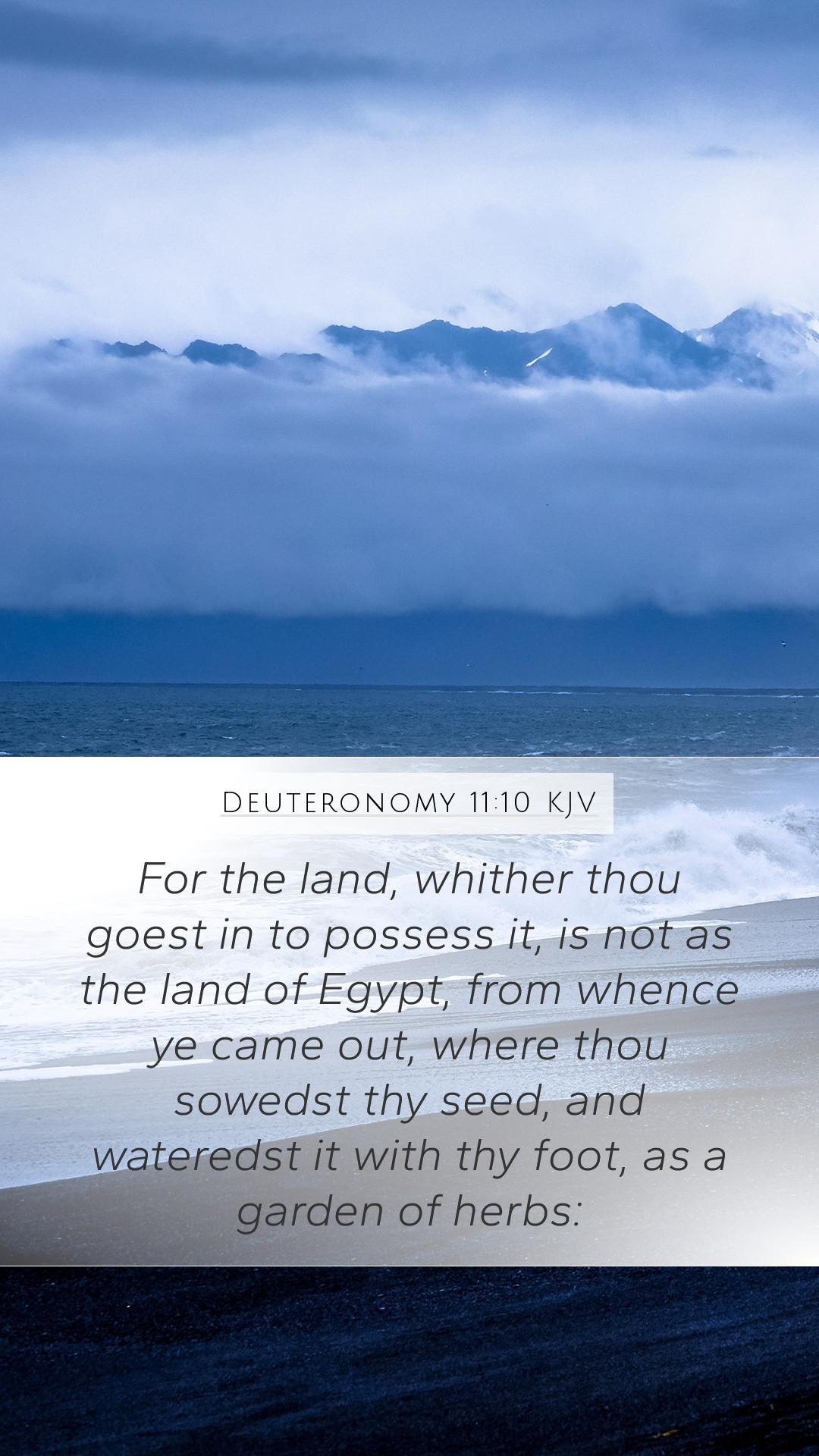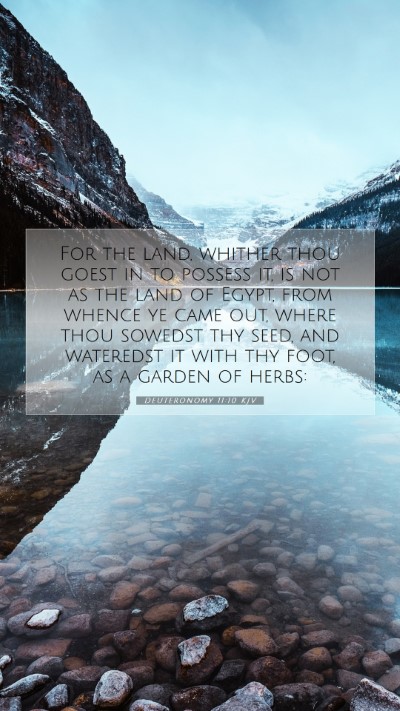Understanding Deuteronomy 11:10
Deuteronomy 11:10 states:
"For the land, whither thou goest in to possess it, is not as the land of Egypt, from whence ye came out, where thou sowedst thy seed, and wateredst it with thy foot, as a garden of herbs:"
Verse Commentary and Interpretation
This verse serves as a critical reminder of the differences between the Promised Land and Egypt, emphasizing spiritual and practical lessons for the Israelites. The public domain commentaries provide various insights into the deeper meanings of this scripture.
Matthew Henry's Commentary
Matthew Henry interprets this verse as a reflection on the distinct nature of the promised land compared to Egypt. While Egypt required human effort to cultivate its land—symbolized by "watering it with thy foot"—the Promised Land is depicted as divinely cared for, reliant on God's provision. Henry stresses that the land of Canaan will be nourished by the rain from heaven, symbolizing spiritual, divine support in their new life.
Albert Barnes' Commentary
Albert Barnes elaborates on the contrast between the agriculture of Egypt and that of Canaan. He descriptively contrasts the manual intervention in Egypt’s farming with the reliance on God’s natural blessings in the Promised Land. Barnes emphasizes that the Lord desires His people to have faith in His providence while they cultivate the land, indicating that spiritual sustenance comes from a divine source rather than mere human endeavor.
Adam Clarke's Commentary
Adam Clarke notes that this verse highlights the transition from a life of labor-intensive cultivation to one of trust in God for provision. He explains that the phrase "where thou sowedst thy seed" indicates the weariness of physical toil in Egypt, contrasting it with the blessings of the land into which they were entering. Clarke encourages readers to reflect on their dependence on God's grace and favor rather than solely on their labor.
Key Themes and Insights
- Divine Provision: The Promised Land signifies not just a physical place but a spiritual transition to reliance on God's providence.
- Contrast with Egypt: This verse symbolizes liberation from the burdens of labor and the hardships found in Egypt.
- Faith and Obedience: As the Israelites prepare to enter Canaan, they are reminded to maintain faith and obedience to God’s commandments.
Application to Daily Life
In applying the meanings of Bible verses like Deuteronomy 11:10, one can draw parallels in how individuals navigate through life's challenges. The reliance on God’s provision can be interpreted in everyday life as a reminder to trust that divine support is often necessary for success and growth.
Cross References
- Exodus 3:8: God's promise to deliver the Israelites and bring them to a fruitful land.
- Isaiah 30:23: Highlights the provision of God for those who trust in Him.
- Psalms 65:9-10: Speaks to God's care for the earth and its inhabitants.
Conclusion
Deuteronomy 11:10 is a rich passage inviting deep reflection on the differences between reliance on human effort and trusting divine provision. Through the insights of traditional commentaries, we understand that true sustenance comes not from our toil but from a faithful relationship with God. As Bible study groups and individuals engage in Bible verse interpretations and Bible study insights, this verse serves as a valuable lesson on faith and divine reliance.
Further Study
For those interested in exploring this verse further, consider utilizing Bible study resources such as commentaries, study guides, and courses focused on biblical exegesis. Delve into the meaning of parables in the Bible and the historical context of Bible verses to gain a comprehensive understanding of God's word.


